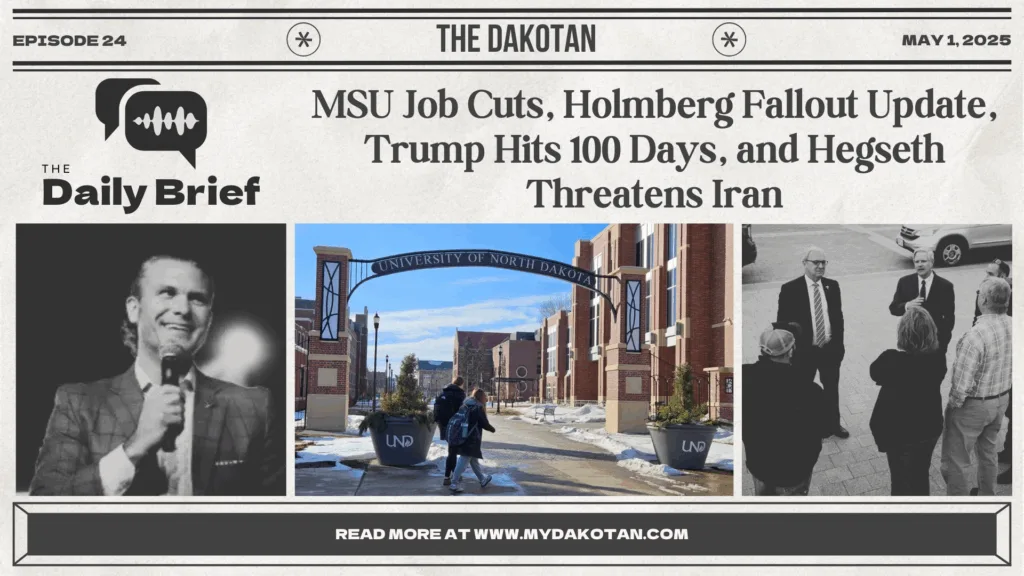

The North Dakota University System is reviewing records for possible violations of law or policy after new documents revealed former Sen. Ray Holmberg communicated with multiple individuals tied to UND and the State Board of Higher Education about his sexual interest in young boys. While none of those named are accused of criminal wrongdoing, UND President Andrew Armacost and others have pledged to sever all ties and investigate whether any officials failed to report misconduct. Holmberg, sentenced to 10 years in federal prison, represented Grand Forks and held key roles overseeing university funding and governance for decades.
Nearly two dozen staff members at the North Dakota Center for Persons with Disabilities at Minot State University are being laid off due to federal funding cuts, according to an internal message from President Steven Shirley. The email, obtained by KMOT, described the decision as “very difficult” and outside the university’s financial control. While 23 employees have been affected, Shirley emphasized that the center will continue to operate and remain an essential part of MSU’s mission. The layoffs reflect broader cost-cutting trends among federal agencies impacting local programs.
Governor Kelly Armstrong visited Minot on Wednesday to celebrate North Dakota’s tourism sector, presenting awards to standout individuals and organizations at the State Fairgrounds. The ceremony honored seven recipients for their contributions to welcoming visitors and promoting the state's attractions. Highlights included Brock White of Watford City winning the Amplifier Award for boosting his city’s visibility, and Stephanie Schoenrock receiving the Legend Award for industry leadership. Armstrong praised efforts to expand tourism while emphasizing the importance of building communities that attract and retain residents, especially in addressing the state’s workforce needs.
Humanities North Dakota has secured $300,000 in private donations to help stay afloat after losing its $900,000 federal grant from the National Endowment for the Humanities, which was abruptly terminated in early April following a Trump administration executive order aimed at streamlining bureaucracy. The bulk of the funding includes $200,000 from the Mellon Foundation and $100,000 from other donors, with an additional $50,000 in potential matching funds. While this support offers temporary relief, Executive Director Brenna Gerhardt says it won’t fully replace the lost funding. In response, Humanities North Dakota is launching a national digital initiative called The Study to share programming with other states also impacted by the cuts.
As President Donald Trump marked 100 days into his second term, Senate Republicans remained confident in his long-term policy agenda despite polls showing rising public dissatisfaction—particularly with the economy. GOP lawmakers defended Trump’s tariff strategy and touted early wins on border security and deregulation, arguing these will yield stronger approval as outcomes become visible. They pointed to upcoming legislative efforts, including a sweeping reconciliation bill with tax cuts and energy provisions, as key opportunities to reshape public opinion. Still, with only 37% approval on economic handling, some GOP senators urged Trump to better communicate his economic vision directly to Americans.
U.S. Defense Secretary Pete Hegseth issued a stark warning to Iran late Wednesday, declaring the nation would face consequences for its “lethal” support of Yemen’s Houthi rebels, following a series of attacks that culminated in a U.S. Navy F-18 falling into the Red Sea. Hegseth's message—delivered on social media—underscored growing U.S. frustration after nearly seven weeks of airstrikes against Houthi positions. He was backed by a forceful statement from President Trump, who blamed Iran for orchestrating Houthi aggression and vowed that any future attacks would be treated as direct acts of war by Iran itself.